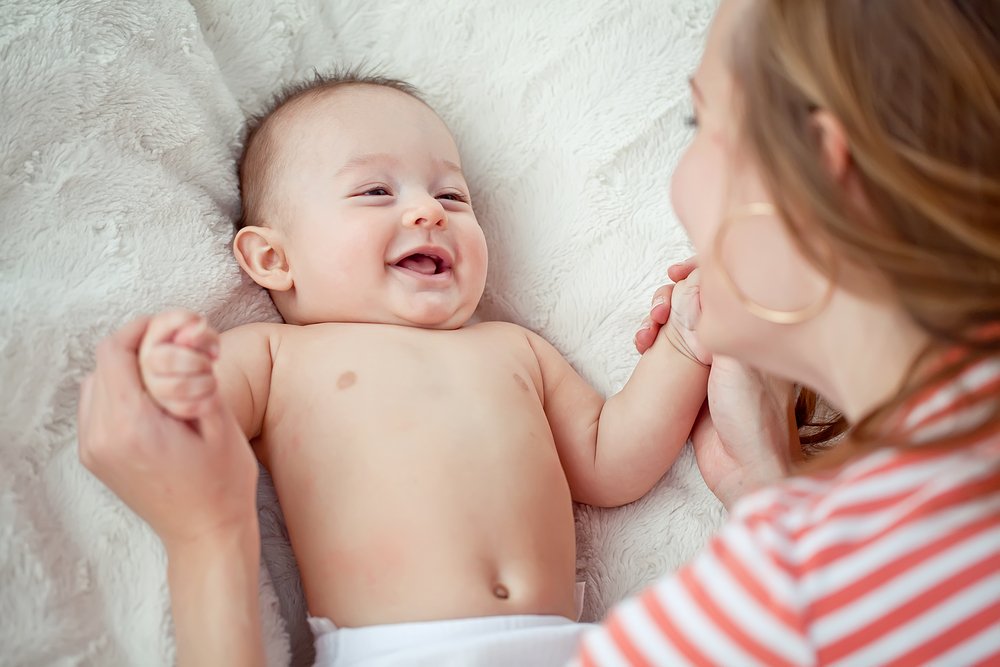Key points:
- Newborns have natural survival reflexes and limited control over their movements.
- Babies initially keep their hands clenched in fists, a reflex that diminishes by 5-6 months.
- At around 2-3 months, babies show improved arm movements and begin to reach for objects.
- Gradually, babies develop hand coordination and can grasp and hold onto toys.
It’s amazing how fast babies learn and achieve new things! In the motor development area, you’ll see that your child will reach certain milestones during their first few months. Newborns come into the world with a series of survival reflexes and they are more capable than we think. Some of these reflexes disappear after a few weeks, while others become voluntary and directed movements.
My babys’ clenched fists
If you are new parents and your baby is just a few months old, you’ll notice that they keep their hands in clenched fists. Your little one is still comfortable staying in the same position they adopted in the uterus: keeping their arms and legs close to their body and their hands in a fist. For now, your baby can’t control many of their movements and you’ll see that, if you caress their palm, they’ll immediately grasp your finger as an automatic response. It’s amazing how someone so small can have such a strong grip! This reflex will show after birth and continue to manifest itself until your baby is 5-6 months, since, little by little, they’ll learn how to control their hands.
When your little one is 2 months old, you’ll see that their movements start to be more fluid and less abrupt. This is due to their nervous system maturation during the last couple of weeks. Even though their finger mobility is still limited and they keep their hands in a fist, your child will start to move their arms in front of them. They’ll do it whenever they are excited and they may start bringing their hands to their mouth to suck at them. It will be exciting to see their progress!
Developing hand coordination
A baby will open their clenched fists progressively. When they are 3 months old, maybe they’ll try to reach for objects voluntarily, even though they won’t be able to hold them properly and that will frustrate them. If you hang something in front of them, they’ll try to grasp it and, in a blink of an eye, they’ll develop their grasp control and will start reaching for things and holding toys. Although the evolution of the palmar grasp reflex from an automatic response to a voluntary action will take a few more weeks, your child will start to relax their hands and spend less time with their fists closed.
When you see that your baby starts doing this, make the most of it and play with them! You can hang small attractive toys in front of them and encourage them to move their hands. When they are able to open their palms, give them things to hold. Remember to celebrate each of their achievements!
Other newborn reflexes that you’ll be able to observe in your baby are the Moro reflex (which is a response to being startled), moving their legs as if walking when they feel a hard surface under their feet, moving their head looking for the nipple or the feeding bottle, squeezing their toes when you touch their sole, etc. Remember that each baby develops at their own rhythm and that not everyone presents and loses all reflexes at the same time. Your pediatrician will test all the newborn reflexes in your baby’s first medical appointment, but, if you have any doubts or concerns, don’t hesitate to ask.








